CES 2013: Piston, Edge and Project Shield Herald Gaming's Future
As Sony ends production of the PS2, it's time for the game industry to move - as it likes to - forward, with a new wave of machines unveiled at the Consumer Electronics Show in Las Vegas.

New gaming hardware at CES 2013
First up is Nvidia's Project Shield, a portable console that runs on Google's Android OS. It's a typical-looking analog controller with a flip-up screen, which plays games downloaded from the Google Play store. It can also be hooked up to any PC using a GeForce graphics card to stream PC games to the smaller screen, allowing you to, ostensibly, play desktop games in your living room. A neat feature, not dissimilar to Xi3's Piston, which also debuted as CES.
Funded by Valve, Piston is a mini-PC that connects to your television, and plays games downloaded from the Steam distribution platform. It's part of Valve's push into living room gaming, which was spearheaded by the launch of TV-friendly user interface Big Picture Mode in 2012. With the Piston, you can browse PC games in a similar way to the Netflix app on Xbox, and download them to be played from the comfort of your sofa, rather than your desk.
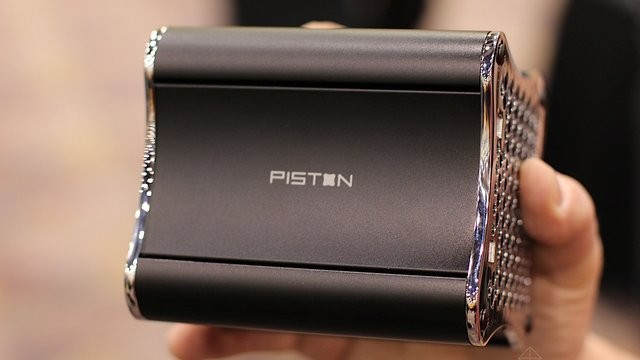
Then there's the Edge, a dedicated gaming tablet from Razer. Originally branded Project Fiona, the Edge has been significantly upgraded since it was announced in 2012. It uses Windows 8, a powerful Intel Core i5 processor (though the more expensive 'Pro' model uses an i7) and features removable physical controls on either side of the 10.1 inch screen. At £600 for a standard model, it's the most expensive gaming device at CES but also the most powerful; like Piston, it allows you to play PC-quality games away from your desktop.
Mobility seems to be a recurring theme with the all-new hardware on show at CES, with Zagg's Caliber Advantage iPhone controls looking to better the iOS gaming experience. They clip onto either side of your iPhone and connect via Bluetooth to give you physical buttons to use rather than the notoriously fiddly virtual controls. A mere optimisation rather than a complete overhaul it may seem, but considering its partnership with Gears of War creator Epic, Zagg is clearly looking to enable different, meatier games on the iPhone as opposed to the simplistic, touch-based ones we've soon so far.
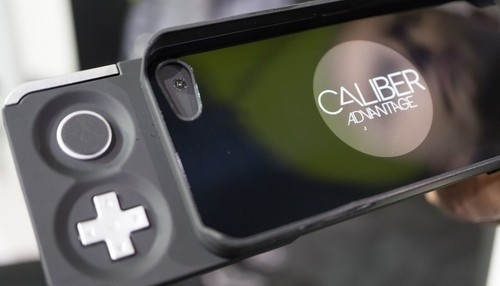
Bringing up the rear gaming-wise is the Archos GamePad, a much cheaper alternative to Project Shield and Razer's Edge. It's a half tablet, half handheld console combining physical buttons with touch-screen functionality. Its chief gimmick is allowing users to order virtual controls in any configuration they like, presumably creating a customised, comfortable layout. But with its weaker graphics technology and, as The Verge calls it, "cheaper, bulkier feel" the GamePad is unlikely to make any major ripples compared to these other new devices.
Nevertheless, it still encompasses the two prevalent trends among the gaming hardware at CES, in that it stresses more mobility at higher quality. With over 20 billion apps downloaded from the App Store in 2012 alone, the market for mobile games is rapidly expanding. But whereas in the past that meant more 69p gimmick games, more touch-sensitive Temple Run or Angry Birds clones to play on the tube, what we're seeing at CES is a potential reinvention of mobile gaming.
What these mean for gaming
Take Project Shield. It provides a dedicated platform for Google Play, elevating the credibility of Android games from something you fiddle with on your phone to kill time to something you have to make time to play. Then there's the Caliber Advantage controls, which, like Shield, bypass the limited input vocabulary of the iPhone's touch-screen to unlock new, bigger and more complex games on mobile. With the addition of dual analog sticks and buttons, you'll be able to play more substantial console-like games without committing to the high prices of an Xbox or PlayStation.
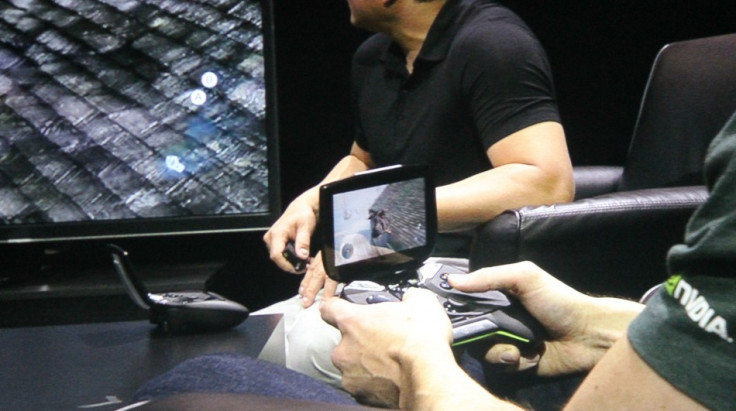
Project Shield and Caliber Advantage create two exciting possibilities. First is the prospect of consumers that are reluctant to invest in a games console - either for monetary reasons or for fear of being branded a nerd - having access to console-like games from devices they can travel with and pick up and put down at discretion. Second is the possibility that physical smartphone controls and a dedicated platform open up more diverse experiences, while still retaining the openness of the App Store and Google Play. Developers who may have been attracted to the creative license and distribution afforded by Android and iOS, but put off by the limitations of touch controls, may find themselves returning to the platform when Shield and Caliber Advantage dispel the more casual attitudes towards mobile gaming.
The other possibility is that these devices close off the mobile platform, as physical controls and dedicated machines like Shield lead to more technologically advanced games, more money at stake and less risk. A lot of mobile developers may struggle to adapt to any growing demand for bigger, better looking games, and as graphics improve on these devices, we may see the mobile market become more like the conventional AAA gaming industry, where totally original games are often looked over in favour of guaranteed financial return. Mobile games could lose their identity.
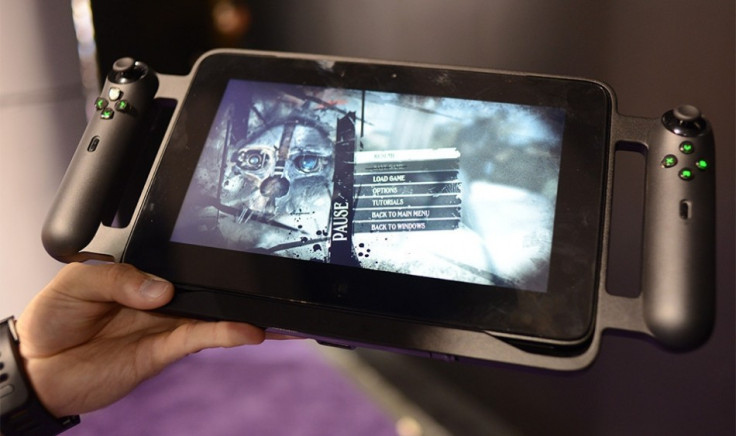
Razer's Edge and the Piston run the same risk. While moving PC games away from the desktop will allow consumers to bypass awkward hardware setups and high prices, it also threatens to make PC and console games indistinguishable. Valve boss Gabe Newell has himself criticised Windows 8 for being too closed a platform, its lengthy certification process obstructing the notoriously open PC development community. If Piston is going to support the plethora of mods, indie games and user generated material that PC users enjoy, then Steam needs to be expanded to feature games, not just from established publishers, but from independent developers, too.
We've already starting seeing this with Steam Greenlight, a recent initiative that allows users to vote on which smaller indie games or mods they would like to see made available on Steam. The Valve business plan seems to be clicking into place with Piston, Big Picture Mode and Steam Greenlight all working in conjunction to bring, not just AAA PC games to the living room, but also the essence of open source indie games and mods, as well.
Newell told The Verge at CES that although Steam was based in only a single online store, in the future, he would like users to be able to create their own online stores using the platform to showcase material chosen by them.
"Right now there's one Steam store," explained Newell. "We think that the store should actually be more like user generated content. So, anybody should be able to create a store, and it should be about extra entertainment value."
Those comments, combined with the rest of Valve's recent announcements, suggest that, even with living-room machines, the company will focus on user generated content as much as other games.
Legitimisation
The Edge is likely to be a more closed affair. Based on Windows 8, with its lengthy certification process, the Edge will probably not support the same wide-reaching development community as Piston and Valve. Instead, it will merely be a way to play PC games as they come on the disc without buying a PC.
However, as reported by Gamasutra, Microsoft has since relaxed its Windows Store admissions policy, so perhaps the Edge could feature a more diverse line-up of games. It's the darkest horse of the bunch and until it launches (no date confirmed yet) we won't be entirely sure of what it can do.
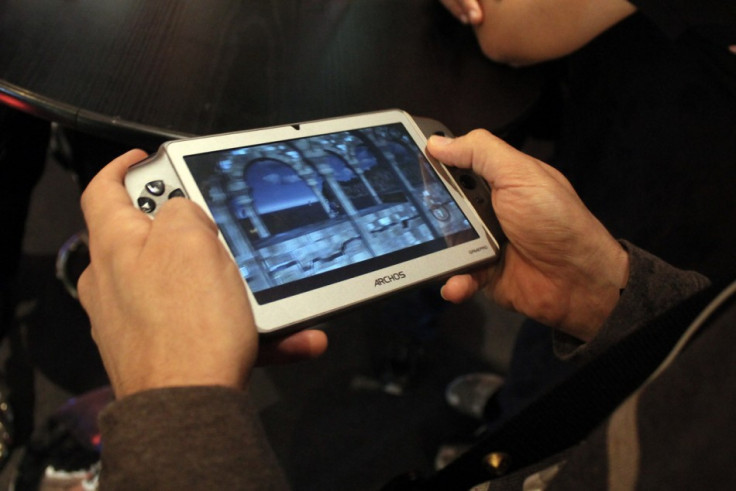
What is clear is that all of these machines - the Shield, the Edge, the Caliber Advantage and the Piston - show is a push towards legitimatisation of maligned types of games. In the case of Project Shield and the Caliber Advantage, it's a case of turning the long-frothy mobile arena into something that console gamers, and people looking for more substantive experiences can enjoy; for Piston and the Edge, it's a move towards convincing consumers that they can afford PC gaming and that the hardware is not just the reserve of a technically savvy minority.
It's early days for all of these devices, but as a start for creating better games, and better environments for developers, they all show promise.
© Copyright IBTimes 2025. All rights reserved.






















